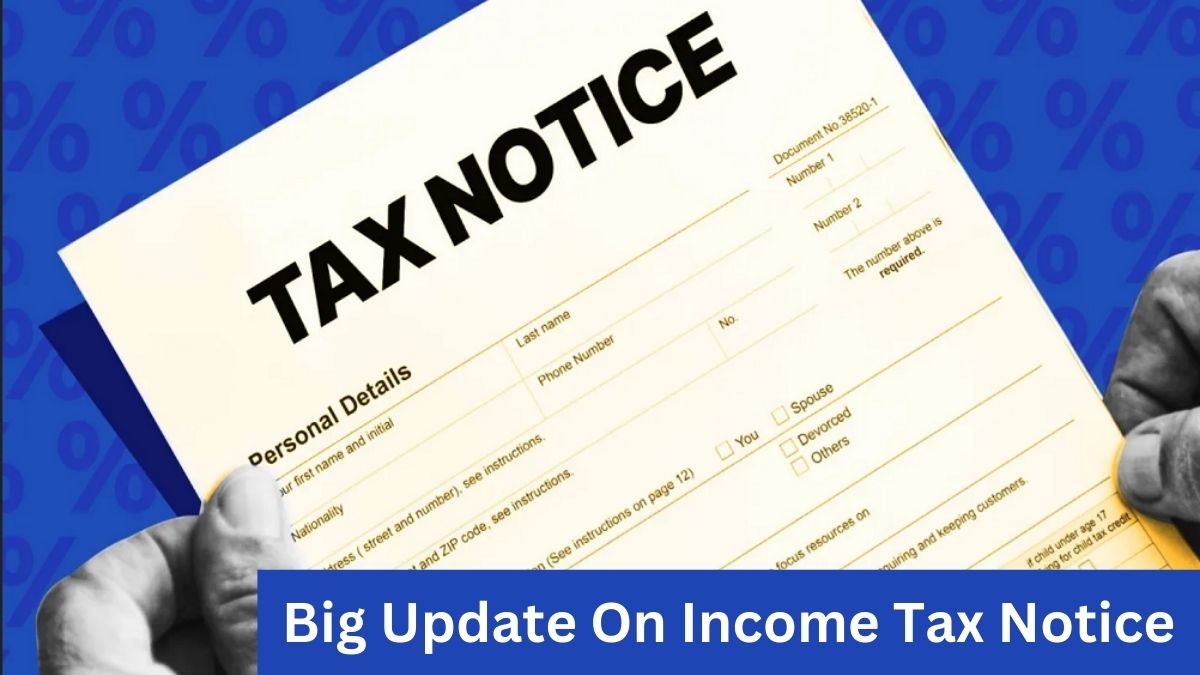The Income Tax Department has implemented strict monitoring mechanisms to track high-value cash transactions. These transactions, often viewed as potential attempts to evade taxes, are scrutinized heavily. While the digital payment system is expanding rapidly, many individuals still rely on cash dealings, either for convenience or to bypass reporting thresholds. However, it is crucial to understand that these transactions can raise red flags and trigger an Income Tax Notice.
This article highlights five key cash transactions that are closely monitored by the Income Tax Department and explains how to stay compliant.

Transactions That Could Trigger an Income Tax Notice
1. Cash Deposit in Bank Accounts
The Central Board of Direct Taxes (CBDT) mandates that any cash deposit that exceeds ₹10 lakh in a financial year must be reported by banks to the Income Tax Department. This includes deposits made in one or multiple accounts under a single name.
- Why it Matters: The government considers high cash deposits a potential sign of unreported income.
- Example: If you deposit ₹12 lakh into your savings account, the bank will flag it to the authorities. Consequently, the Income Tax Department may inquire about the sources of these funds.
- Tip for Compliance: Maintain proper documentation of your income sources, such as salary slips, business earnings, or asset sales, to avoid penalties.
2. Cash Deposits in Fixed Deposits (FDs)
Similar to regular bank deposits, fixed deposits exceeding ₹10 lakh in cash during a financial year are also monitored. These transactions may prompt questions from the Income Tax Department if they suspect discrepancies.
- Why it Matters: Large cash investments in FDs might indicate unaccounted wealth.
- Example: Investing ₹15 lakh in multiple FDs within a single financial year could raise a red flag.
- Tip for Compliance: Utilize electronic transfers for large investments and keep proper records of your taxable income.
3. Large Cash Transactions for Property Purchases
Real estate transactions are a significant area of focus for the Income Tax Department. If you make a cash payment of ₹30 lakh or more while purchasing a property, the property registrar is required to report the transaction.
- Why it Matters: Real estate deals often involve cash components to avoid taxes, which the authorities aim to curb.
- Example: Paying ₹35 lakh in cash as part of a property purchase will alert the Income Tax Department, leading to an inquiry.
- Tip for Compliance: Always use traceable payment methods, such as bank transfers or demand drafts, for real estate purchases.
4. Paying Credit Card Bills in Cash
Using cash to settle high credit card bills also draws scrutiny. If bill of your credit card payment exceeds ₹1 lakh in cash, the Income Tax Department might question the sources of the funds. Moreover, if your cumulative annual credit card payments (irrespective of the mode) exceed ₹10 lakh, this too will be flagged.
- Why it Matters: High-value cash payments are often associated with unreported income.
- Example: Paying ₹1.5 lakh in cash for a credit card bill could trigger a notice seeking justification for the sources of funds.
- Tip for Compliance: Pay credit card bills through digital means and maintain proper records of income.
5. Purchasing Shares, Mutual Funds, or Bonds in Cash
Investments in financial instruments such as shares, mutual funds, bonds, or debentures exceeding ₹10 lakh in cash are another area of concern. These transactions are flagged by financial institutions to the Income Tax Department.
- Why it Matters: Investing large sums in cash is considered a potential avenue for money laundering or tax evasion.
- Example: Purchasing ₹12 lakh worth of mutual funds in cash could result in the Income Tax Department asking for proof of legitimate income.
- Tip for Compliance: Use online platforms or bank transfers for such investments to ensure transparency.
Key Cash Transactions and Reporting Thresholds
| Transaction Type | Threshold Limit | Who Reports It? | Potential Issues |
|---|---|---|---|
| Cash Deposit in Bank Accounts | ₹10 lakh (per year) | Banks | Inquiry about the source of income |
| Cash Deposits in Fixed Deposits (FDs) | ₹10 lakh (per year) | Banks | Suspicion of unreported wealth |
| Property Transactions | ₹30 lakh or more | Property Registrar | Investigation into unaccounted payments |
| Credit Card Bill Payments in Cash | ₹1 lakh (single bill) | Credit Card Issuers/Banks | Verification of income legitimacy |
| Investments in Shares or Mutual Funds | ₹10 lakh or more | Financial Institutions | Concern over money laundering |
FAQs
1. What should I do if I receive an Income Tax Notice?
First, do not panic. Read the notice carefully to understand the reason for its issuance. Respond promptly with accurate documentation and consult a tax professional if necessary.
2. How can I avoid receiving an Income Tax Notice?
Ensure transparency in all financial transactions. Avoid cash dealings for high-value transactions and keep proper records of income, investments, and expenditures.
3. Is digital payment always safe from scrutiny?
While digital payments are less likely to trigger notices for evasion, all high-value transactions are monitored. Always maintain accurate financial records, regardless of the payment mode.
4. Are gifts in cash taxable?
Yes, if the total value of cash gifts exceeds ₹50,000 in a financial year, it becomes taxable under certain conditions.
5. Can I appeal against an Income Tax Notice?
Yes, if you believe the notice is issued in error, you can appeal to the relevant Income Tax authorities or seek legal assistance.
The Income Tax Department’s vigilance over cash transactions aims to curb tax evasion and ensure financial transparency. By understanding and adhering to these guidelines, you can avoid unnecessary complications. Always prioritize maintaining clear and accurate financial records to stay on the right side of the law.
Click here to know more.
Kishan is a knowledgeable writer specializing in agriculture and the latest government job recruitments, delivering clear and insightful content to inform and empower readers.
